Somalia elects a president - Here are 5 things you need to know
MPs and Senators will elect new president amid a security and corruption crisis and looming famine.
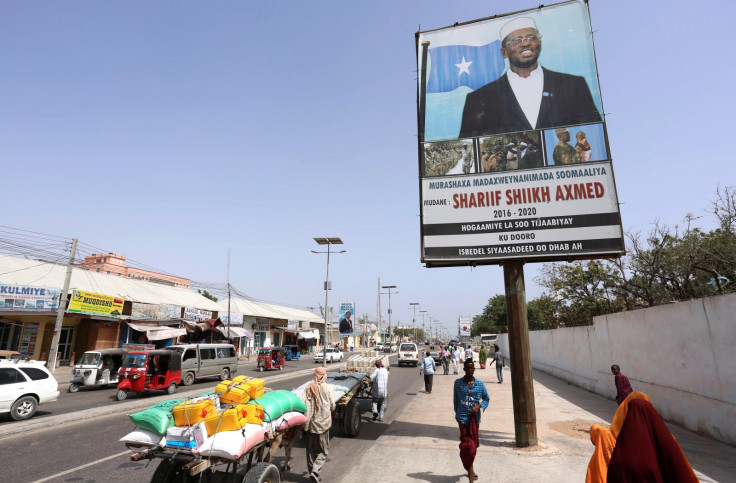
Somalia, which has been without a functioning government since civil war broke out in 1991, is to hold a watershed vote on 8 February, under the auspices of the UN, to decide whether Hassan Sheikh Mohamud should serve a second term.
The indirect vote, in which members of parliament and an upper house will choose a president from 23 candidates, has been hailed by the international community (UN, EU and US) as a landmark for Somalia.
Following the creation of a UN-backed unity government in 2000 it is hoped the 2017 indirect elections will lead to full, direct elections in 2020.
However, the long-awaited elections have brought to the surface many of endemic problems that have plagued the east African nation since the radical al-Qaeda linked group al-Shabaab took control of the capital Mogadishu in 2006.
Security problems including regular suicide bomb attacks plague the city and have already forced the international community to abandon their 2012 pledge to hold direct elections. Voting will take place in Mogadishu International Airport, the most secure facility in the Somali capital, and the focus of regular al-Shabaab bomb attacks.
How Somalia's electoral system works
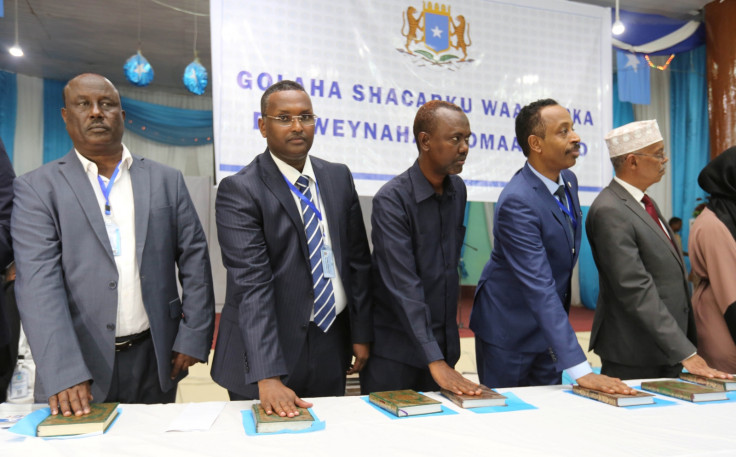
While Somalia technically held a presidential poll in 2012, President Hassan Mohamud's outgoing government was chosen by 135 leaders. In 2012 the US, UN, and EU stated their desire to the presidency to hold direct elections in 2016.
Because of logistical issues, the indirect presidential elections have been moved to 2017. The hope is that in 2020, Somali voters will exercise full suffrage and cast their ballots in the first popular vote since 1969.
As it stands, one of the 23 presidential candidates will be elected by 275 MPs and 54 senators, sworn in following elections in December 2016. These MPs and senators were chosen by 14,025 delegates who were themselves selected by 135 tribal elders. Ensuring a democratic solution equitable to Somalia's competing tribal groups has been one of the key obstacles to overcome for the UN which devised the voting process.
Elections marred by corruption
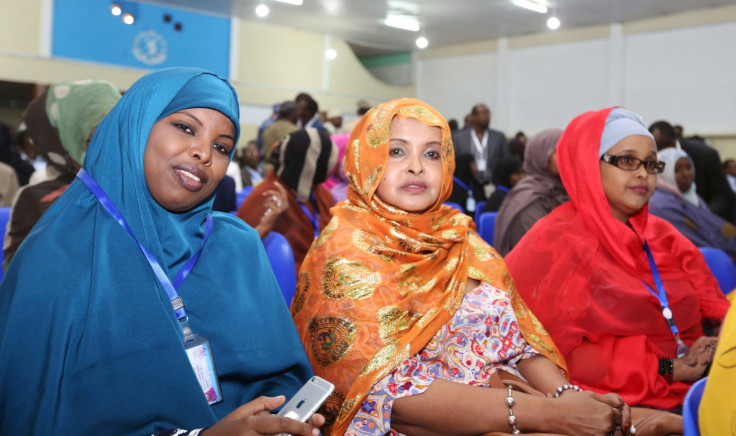
Millions of dollars are reported to have changed hands in the election, with parliamentarians candidates buying seats and votes for anywhere between $5,000 to $30,000 dollars. The AP reported that two of the seats for parliament members who will elect the president have gone for $1.3m apiece.
The international community have criticised the ubiquitous corruption. The UN, US, and EU, who have adopted lock-step positions on Somalia, have referred in a joint statement to "egregious cases of abuse of the electoral process, including seats reserved for women candidates only that were ultimately taken by male candidates."
Regional players have also been looking to sway the election for their own gain. The New York Times reported that Turkey, Sudan, the UAE and Qatar have been looking more than any other nations to influence the outcome.
Who is Hassan Sheikh Mohamud, the Somali president seeking a second term?
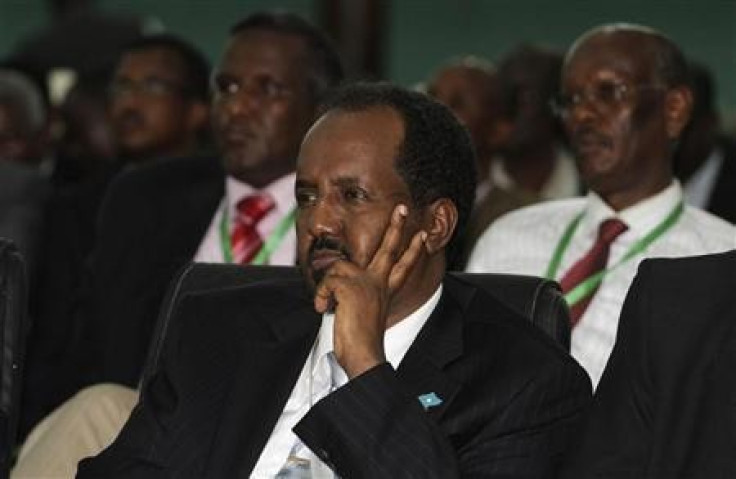
Hassan Sheikh Mohamud, who is running for a second term, took the helm of Somalia after winning the indirect presidential election held on 10 September 2012, when clan elders picked the new president from among four candidates.
Mohamud was sworn in six days after the election, hailed by the international community as a step towards democracy in a country that had been ravaged by years of civil war. The leader's anti-corruption fight and efforts to enhance development in the country were praised internationally, with the Time magazine naming him as one of the 100 most influential people in 2013.
The Somalian politician was born in Jalalaqsi, in the Hiran province, in 1955. The leader, who grew up in the capital Mogadishu, is from the Hawiye clan, one of the country's largest groups.
Mohamud studied in Mogadishu and India. When the civil war broke out in the early 1990s, he worked for several humanitarian organisations, including as an education officer for the UN Children's Charity (Unicef).
Before taking an interest in politics, Mohamud founded the Mogadishu's Simad university, where he worked as a dean for ten years before resigning in 2010. One year later, he established the Peace and Development Party (PDP) and joined the newly formed Federal Parliament of Somalia in 2012.
Described as a moderate Muslim, he has two wives and several children, some of whom live abroad.
The scourge of al-Shabaab
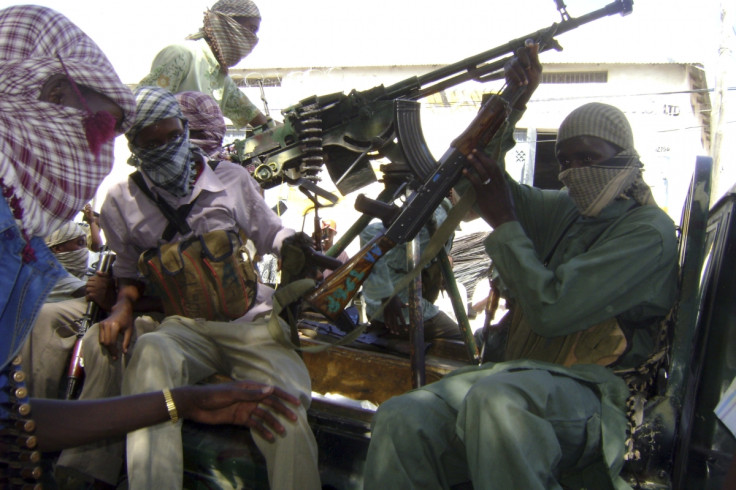
Al-Shabaab, which is fully named Harakat al-Shabaab al- Mujahideen, or Mujahideen Youth Movement, was formed in Somalia in 2006 as a spin-off of the now-defunct Union of Islamic Courts group that controlled Mogadishu and other areas of the country for a few months that year. It has since been leading an Islamist insurgency aiming to impose a strict interpretation of Sharia law in the country.
Initially the group exploited lawlessness created by more than two decades of almost uninterrupted conflict in Somalia, to seize control of Mogadishu and large swathes of land, mostly in the southern provinces bordering with Kenya. In 2012 the group pledged allegiance to al-Qaeda.
It was believed al-Shabaab could play a deeply disruptive role in the elections. The scale of corruption means the elections have been a PR victory for the insurgents which have been seen to be above the backdoor politics.
The looming spectre of famine
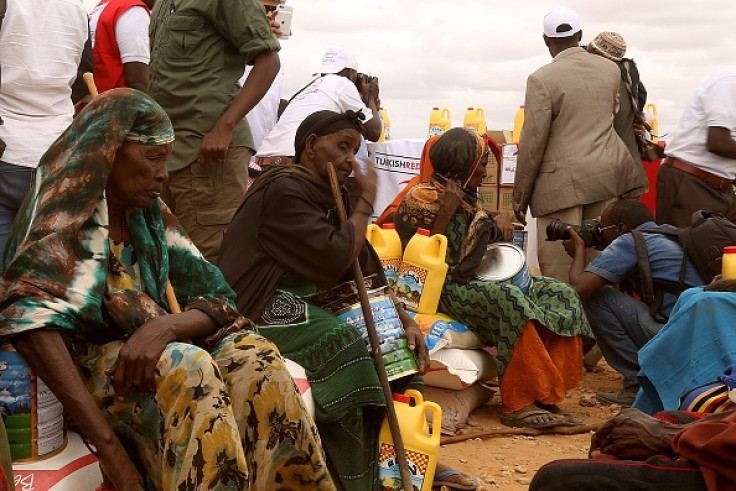
One of the most pressing structural problems that the new government will have to solve is an ongoing drought, caused by two consecutive seasons of poor rainfalls. At least 6.2 million people (more than half of the country's population) are facing starvation due to lack of food.
Severe water shortages, a drop in food production, livestock deaths and rising costs of food are pushing the country towards the brink of a famine just six years after some 260,000 people starved to death in the East African nation.
Earlier in February, the UN warned hundreds of thousands of people were in need of urgent assistance. "If we do not scale up the drought response immediately, it will cost lives, further destroy livelihoods, and could undermine the pursuit of key State-building and peacebuilding initiatives," said UN Humanitarian Coordinator for Somalia, Peter de Clercq.
UN agencies further warned that at least 363,000 children were "acutely malnourished". Of these, more than 71,000 needed life-saving treatments.
© Copyright IBTimes 2024. All rights reserved.







